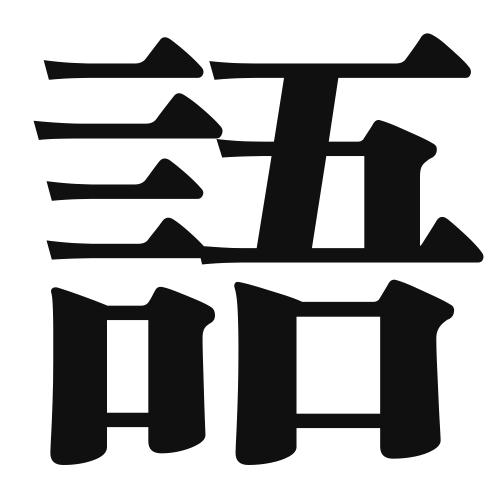1. Overview of Meaning
The kanji 語 (go) means “language” or “word.” It is used to refer to spoken or written communication and is often associated with different languages and dialects.
2. Origin and Radical
The kanji 語 is a compound character (会意文字) that combines the elements of “speech” (言) and “to go” (我). The radical of this kanji is 言 (gen), which relates to words and speech.
3. Examples of Usage
Common words and phrases that include the kanji 語 are:
- 言語 (gengo) – language
- 外国語 (gaikokugo) – foreign language
- 語彙 (goi) – vocabulary
Example sentence in daily conversation:
私は日本語を勉強しています。 (Watashi wa Nihongo o benkyou shiteimasu.) – “I am studying the Japanese language.”
4. Synonyms and Antonyms
Similar kanji with related meanings include:
- 言 (gen) – word, speech (more general and can refer to any spoken or written word)
- 話 (hanashi) – talk, story (refers more to the act of speaking or storytelling)
Antonyms include:
- 無言 (mugon) – silence (the absence of speech or words)
5. Cultural and Historical Background
The kanji 語 is deeply connected to Japanese culture, as language is a vital part of communication and identity. It appears in various proverbs and idiomatic expressions, such as:
- 言語道断 (gengo doudan) – “unthinkable” or “beyond words,” used to describe something outrageous.
- 言葉にする (kotoba ni suru) – “to put into words,” meaning to express something verbally.
Understanding the kanji 語 provides insight into the importance of language in both personal and cultural contexts in Japan.
